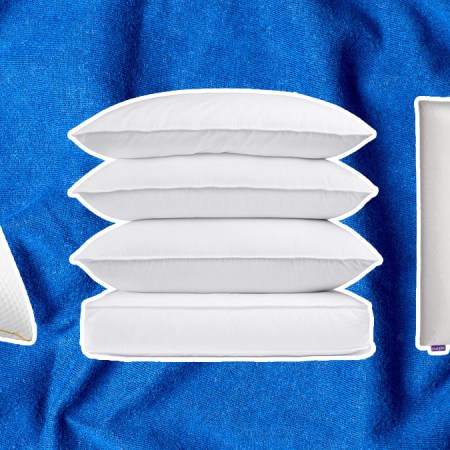According to a recent article by The New York Times, the Google search term “why am I having weird dreams lately” has quadrupled in the United States over the past week. Americans are having some crazy dreams at the moment, and before heading back to bed to go 12 rounds with a giant Peep wearing an N95 mask (just me?), they’d like to know why.
COVID-19 is playing a massive role, obviously, but not in the exact way that you might think. The country’s resident dream expert, Harvard Medical School’s Deirdre Barrett, has been collecting data in a handy online survey (which you can take here) and has explained to publications like the Times, The Cut and Vice that the weird dreams — or even nightmares — people are experiencing right now can be attributed in part to more sleep.
“The American population runs around sleep-deprived,” she said to The Cut. “I hear more people who — both because their workaholic activities are interrupted and their partying is on hold — they’re sleeping more. I think that’s probably the single biggest factor.”
As chronically sleep-deprived people start logging more hours of snooze-time, they increase their “R.E.M. density”: that is, periods of heightened brain activity when the eyeballs flutter chaotically and dreams reach a vivid apex. We’re not all getting to bed earlier, of course, but without morning commutes or evening dinner parties, and late-night TV far less of a treat than it used to be, bedtime (and the promise of a long break from news alerts) has made more sleep an imperative during this time. Hence longer dreams, and more of them.
But where does the weirdness come from? What makes these dreams, other than their sheer existence, more memorable? Barrett cautions from assigning COVID-19 trauma to unsettling dreams, pointing out that traumatic dreams (which are a tentpole of PTSD) are often realistic. They force their victims to relieve awful memories, often with precise details. Medical workers are experiencing these sorts of dreams right now, and will potentially have them for a long while.
For the rest of us, it’s a load of twisted metaphors meant to communicate uncertainty, unwelcome shifts in routine and an era of prevailing anxiety. You might find yourself dying quite a bit, or unable to speak or move, or bumping into old middle-school tormenters.
The good news? It’s possible to plan a dream ahead of time. There’s no guarantee of success, but it’s an improvement on just dropping your head to the pillow and hoping for the best. Feel free to peruse scientific studies if you’re really serious about it. A good place to start, though, is to visualize whatever you’d prefer to experience in dreamland just before drifting off to sleep.
Subscribe here for our free daily newsletter.
Thanks for reading InsideHook. Sign up for our daily newsletter and be in the know.


















